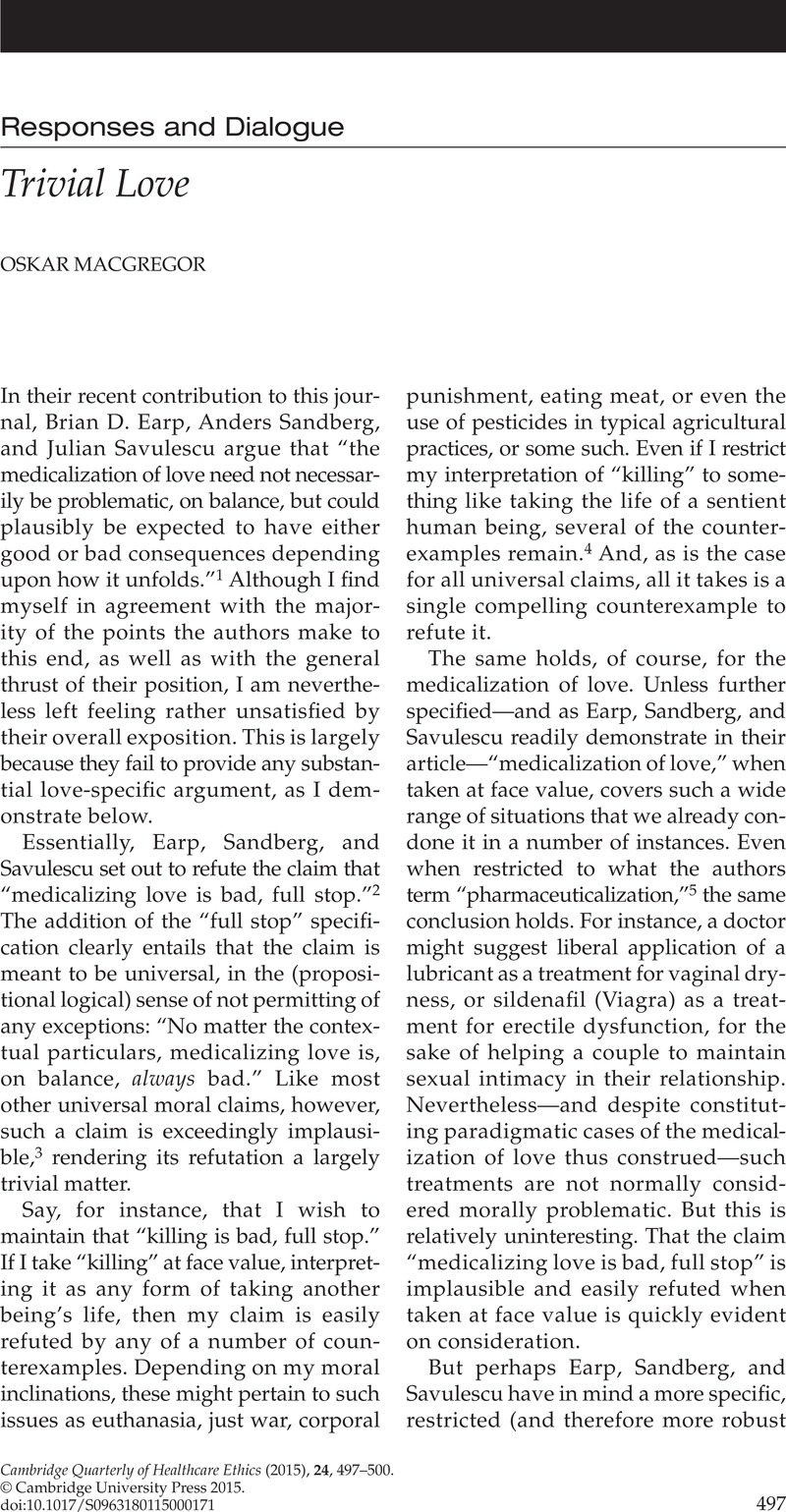No CrossRef data available.
Article contents
Abstract

- Type
- Departments and Columns
- Information
- Copyright
- Copyright © Cambridge University Press 2015
References
Notes
1. Earp, BD, Sandberg, A, Savulescu, J. The medicalization of love. Cambridge Quarterly of Healthcare Ethics 2015;24:323–36, at 323.CrossRefGoogle ScholarPubMed
2. Quoted from Parens E. On good and bad forms of medicalization. Bioethics 2013;27:28–35, at 33, by Earp et al. 2015, at 325.
3. It could also be tautological, of course, in the sense of building the badness into the phenomenon under consideration by definition, although this would render such a universal moral claim uninformative; “bad action x is bad” says nothing helpful or interesting about x, morally or otherwise.
4. I could go further, of course, restricting my interpretation of “killing” to something like taking the life of a sentient human being under a strict set of circumstances x, y, z, and so on. But doing so is itself implausible, for the simple reason that it constitutes a perverse interpretation of “killing,” one that is too far removed from common interpretations of the term to be deemed relevant in anything but the most esoteric conceptual discussions, if even then. Put simply: such a claim is not a universal claim. If it were to embrace its nonuniversality, for instance by spelling out the restrictions in the moral claim itself, rather than in the definition of the relevant moral terms, then the claim would be both more interesting and more difficult to refute. Such considerations do not apply, however, in the present case, given that we are here concerned with an explicitly universal claim about the medicalization of love.
5. See note 1, Earp et al. 2015.
6. See note 1, Earp et al. 2015.
7. See note 1, Earp et al. 2015, at 323.
8. See note 2, Parens 2013.
9. See note 1, Earp et al. 2015.
10. See note 1, Earp et al. 2015, at 327.
11. See note 1, Earp et al. 2015, at 331–2.


